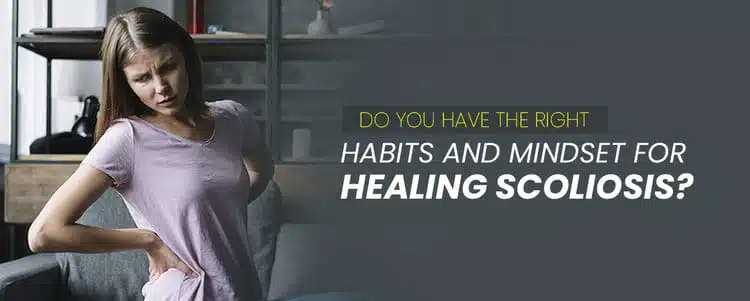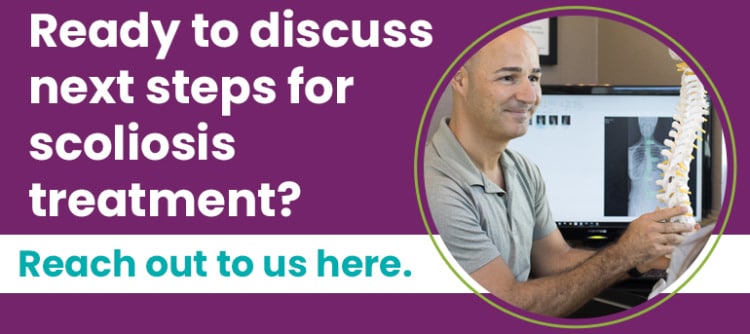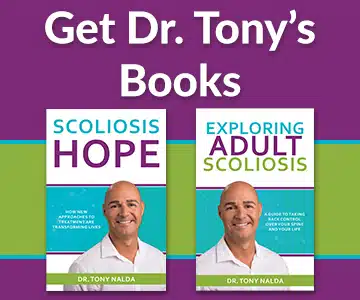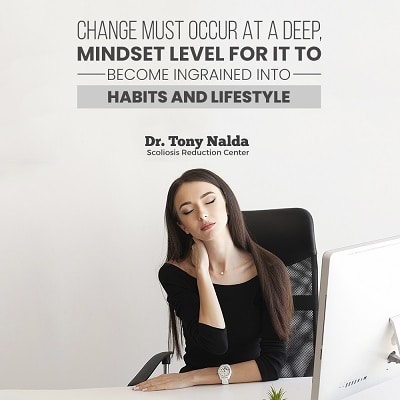
People who want to make big changes in their lives often find success by examining and changing their habits, which is not always easy to do. In many cases where transformation is necessary, making small tweaks is not enough to drive positive change. Change must occur at a deep, mindset level for it to become ingrained into habits and lifestyle.
For example, it is quite common for people to want to lose weight. Some people will go on diets for brief periods of time or begin exercise regimens. They notice some changes, but those changes rarely stick. They go back to their regular diets and normal routines and eventually find themselves right back where they started. It’s a process that I think we are all familiar with, and it can be very frustrating.
When people succeed at changing themselves for the better, it is usually because they decide to make serious changes to their mindsets and habits. They don’t go on diets; they change their diets permanently. They don’t just join a gym; they make fitness an integral part of everyday living. It’s not about quick fixes — it’s all about developing new habits and entirely new routines.
For people with scoliosis, habits and mindset can make a big difference when it comes to treating their condition effectively. Scoliosis is a condition that doesn’t appear or disappear quickly. It develops slowly over time. Even cases that seem to have developed overnight have been progressing in the background. Likewise, reductions in abnormal spinal curvatures do not appear quickly or spontaneously. Rather, reductions take time and effort. That being the case, it is easy to see why small tweaks would not have the desired impact. Instead, changes should be made on a deeper, more holistic lifestyle level.
What Does the Word “Lifestyle” Mean?
Various sources provide different definitions of the word, but I would define it like this:
Lifestyle is the set of values, choices, attitudes, beliefs, opinions, motivations, needs, wants and behaviors that determine a person’s way of being. It is not so much about specific choices as it is about the fundamental aspects of a person’s core that drive those choices, leading to the formation of habits. It is determined largely by each individual, but is greatly influenced by society, culture, family and a person’s economic realities. Lifestyle is also influenced heavily by a person’s aspirations — it has a lot to do with how people see themselves in the present, but is also heavily impacted by people’s notions of who they will become.
In terms of living with scoliosis, lifestyle is a serious consideration. The way a person approaches living and daily habits will directly impact their ability to treat their condition.
Healthy Habits for Those with Scoliosis
Scoliosis affects people from all backgrounds and walks of life. And it affects every individual differently. There is no single set of habits or lifestyle choices that is appropriate for everyone who has scoliosis. But there are some practices that can move patients in a positive direction:
● Diet — People who fuel themselves with balanced diets are more likely to respond favorably to treatment. Eliminating highly processed foods or those loaded with excess sugar in favor of whole, natural foods is an example of a lifestyle choice highly conducive to improved health for scoliosis patients.
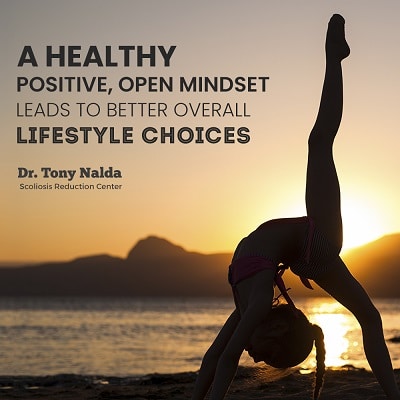
● Activity — Exercise and physical activity are key to living one’s best life with scoliosis. Patients should understand that exercise is not just something that can be done a few times. It needs to become a part of the daily routine. It shouldn’t be seen as a passing fad; it needs to become part of one’s lifestyle.
● Social Life — Humans are highly social creatures. Our lifestyles are determined largely by the people we spend the most time with. Therefore, if a scoliosis patient spends too much time with unhealthy or negative people, it will probably lead to them living an unhealthy, negative lifestyle. On the other hand, patients who socialize with positive, uplifting and supportive people develop habits and lifestyle choices that are much more conducive to healing.
● Mindset — At the heart of everything is a person’s mindset. A person’s lifestyle is cultivated initially in the mind. So if a person with scoliosis wants to change their lifestyle, it is critical to start with the space between the ears. A healthy, positive, open mindset leads to better overall lifestyle choices. This is huge! In fact, I want to spend some time specifically on this aspect because it is so critical to healing and developing healthy habits.
Mastering the Mindset for Scoliosis Healing
Perhaps there is no singular type of mindset that guarantees success with scoliosis, but there are certainly noticeable factors that seem to correspond to better outcomes for patients.
There are no one-size-fits-all solutions for those who have scoliosis. But I can offer some wisdom that can help patients and parents sharpen their mindsets, toughen their ability to cope with the condition and open them to new, more positive ways of thinking. This leads to the formation of healthier habits and lifestyle choices, which is crucial for healing the condition.
Belief, Acceptance and Love
Scoliosis patients with healthy mindsets do not fall into the trap of self criticism or pity. Instead, they believe strongly in themselves as individuals. They accept themselves for who they are — not for who they would rather be — and they love themselves unconditionally. They even find a way to love their scoliosis! With this type of accepting mindset, they are capable of achieving much more than the average person because they are not weighed down by negative, critical self talk. They are grateful to be here and honored by the opportunity to face the challenge of coping with scoliosis. This type of mindset is not the default reaction. It is normal for patients to turn to the negative view of things, but the ability to look at situations differently can be learned and ingrained through training.
Honesty and Purpose
People with healthy mindsets spend time cultivating their ability to be honest — with themselves and others. They don’t try to spin things in a positive light just to feel better or make others feel better. Instead, they are honest about how their condition makes them feel. This doesn’t mean dwelling on the negative, though. It means recognizing that there are positive and negative aspects to all situations and scenarios. And when a person is honest about these things, it gives them the chance to live with genuine purpose. For scoliosis patients, purpose could mean finding a way to live the best life with the condition, or it might mean being driven by the promise of healing. Regardless, people with healthy mindsets tend to develop this powerful combination of honesty and purpose better than most others.
Presence and Forward Movement
People with healthy mindsets don’t spend too much of their time lamenting the past or worrying about the future. They live their lives in the present moment, which means they don’t miss out on what’s happening in the here and now. Being present and mindful of the moment contributes to less strain and mental distress. It also helps people center their minds in a way that leads to greater openness, patience and positivity. And when people are grounded in the present moment, they give themselves the best chance at moving forward in ways that are conducive to their values. For scoliosis patients, parents and others who are affected by the condition, this creates a grounded, healthy mindset.
Habits, Mindset and You
Whether you are a patient or parent, your lifestyle and mindset have a tremendous impact on the effects of scoliosis. If you recognize the need for change in order to cope with scoliosis more effectively, you may be interested in learning about tweaks or quick fixes. However, real change comes from deeper changes that happen on the lifestyle and mindset level. Obviously, changing one’s tried-and-true, familiar lifestyle can be quite daunting and intimidating. But I can tell you that those who have done so successfully — and in the best interest of treating their scoliosis — are the ones who make the most progress.

